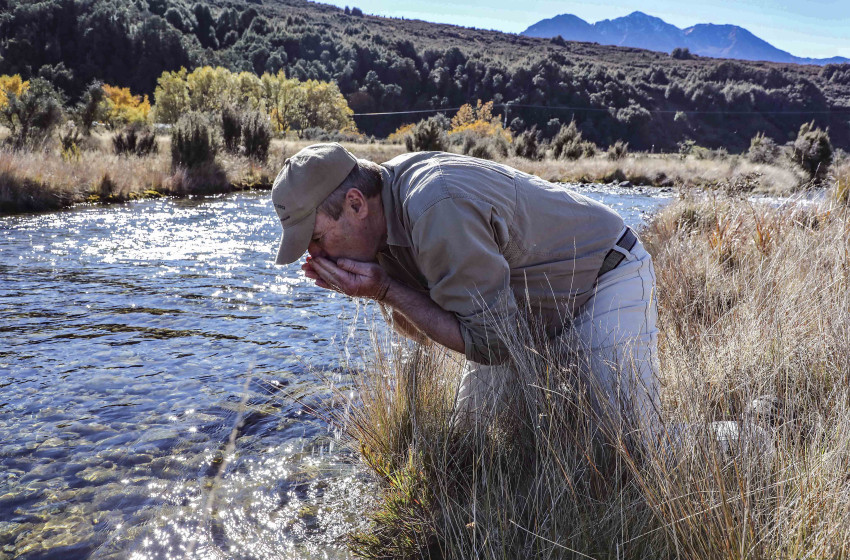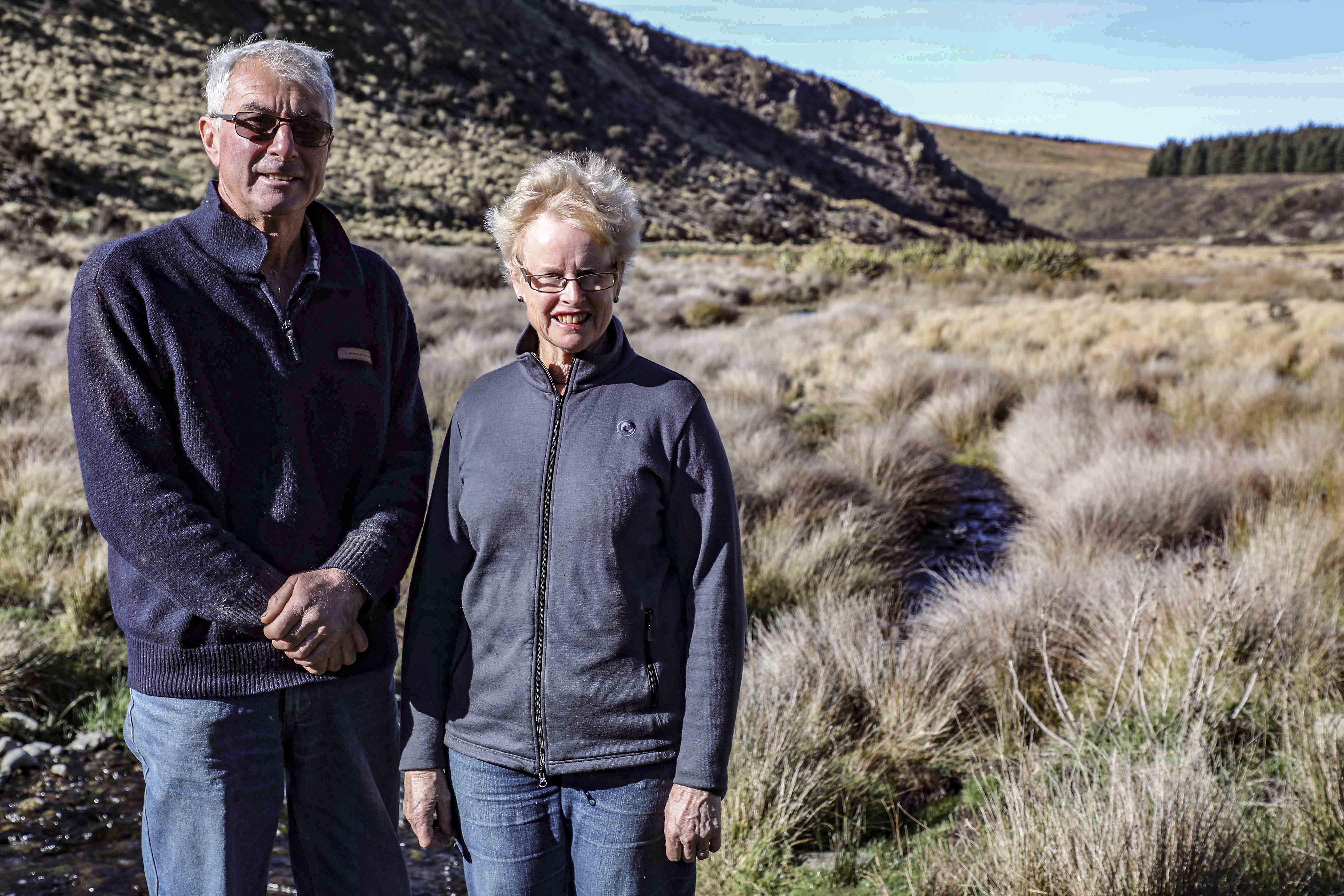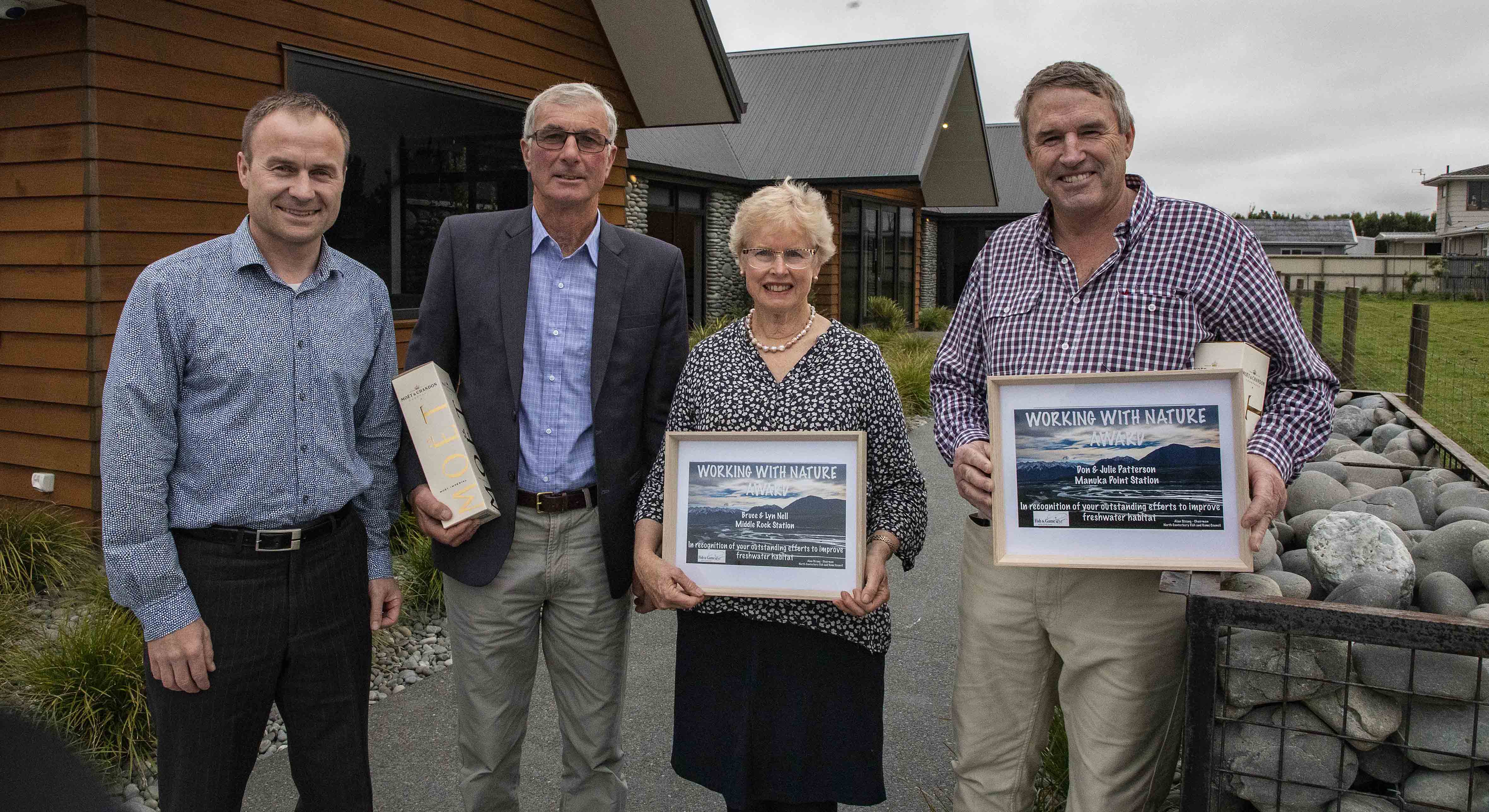Working with nature reaps rewards for farmers
- 25/01/2019
- Richie Cosgrove

Two Canterbury high country farming couples have been jointly awarded the 2018 North Canterbury Fish & Game Working with Nature awards.
The awards are given each year to farmers who have made an effort to protect the environment.
Fish & Game says the efforts that Bruce and Lyn Nel from Middle Rock Station and Don and Julie Patterson from Manuka Point Station have made to preserve the natural environment and protect waterways has earnt them this year’s environmental recognition.
While it is unusual to give two awards, Fish & Game says the decision was easy because both farming couples had made such outstanding efforts to protect the environment, they were equally deserving of the top prize.
Above Right: Manuka Point's Don Patterson has a drink from a stream on his property.
“Both farms are in the Rakaia River catchment some distance apart, but both share the same commitment to protecting the land and water around them,” says Fish and Game North Canterbury Chairman Alan Strong.
The Nel's farm more than 7,000 sheep on their high country station but have also diversified into accommodation and high-end farm tours to make the farm more financially resilient, he says.

Bruce & Lyn Nel of Middle Rock station.
“Taking over the farm in 1973, the Nels have practiced sound environmental activities even when there were financial incentives to do just the opposite,” Mr Strong says.
Government subsidies in the 70’s and 80’s encouraged the clearing and draining of wetlands which the Nels very fortunately chose not to do.
“So their land has excellent examples of tussock grasslands, tall matagouri stands and wetlands in relatively unspoiled condition, Alan Strong says.
Their approach was to instead use the features of the land to enhance their farming operation.
“This included the ability to graze grasslands bordering wetlands during times of drought, making use of the greater water retention the wetlands afforded.”
They also chose to keep matagouri stands in their paddocks, as during the winter months these would break up the snow pack, allowing animals to access critical food supplies.
The vegetation offers important protection from the weather especially during lambing.
Alan Strong says that in the intervening 46 years, Bruce and Lyn Nel have been careful caretakers of the land and now have their daughter Charlotte working on the farm.
Further up the Rakaia River valley, the Patterson family at Manuka Point are great stewards of the land and run a high-yielding, low environmental impact operation, Mr Strong says.
“The existence of healthy tussock drylands and wetland plant species on their property is testament to their desire to keep things as natural as possible.
“This is a very commendable aim, given the pressures on many high country farms to intensify their farming operations.”
The last time fertiliser or chemicals of any nature were applied to Manuka Point was back in 2004.

Working with Nature Award winners-Scott Pearson Fish & Game, Bruce & Lyn Nel and Don Patterson
“The farm’s main source of income is from their game estates and hunting operations, that offer international guests the chance to hunt big game animals and fish pristine waters,” Mr Strong says.
The station also has an extensive livestock operation, with a flock of Arapawa sheep and herds of fallow and red deer.
“The work the Pattersons have undertaken to protect some of the Rakaia River’s salmon spawning streams must be highlighted, as protecting such important sites will be instrumental in the recovery of the salmon fishery.”
Alan Strong says North Canterbury Fish and Game will continue the Working With Nature Awards in 2019 and is a calling for suggestions about potential candidates.
“We want to hear about other farmers who might be flying under the radar doing great work to protect the environment so we can give them the recognition they deserve.”